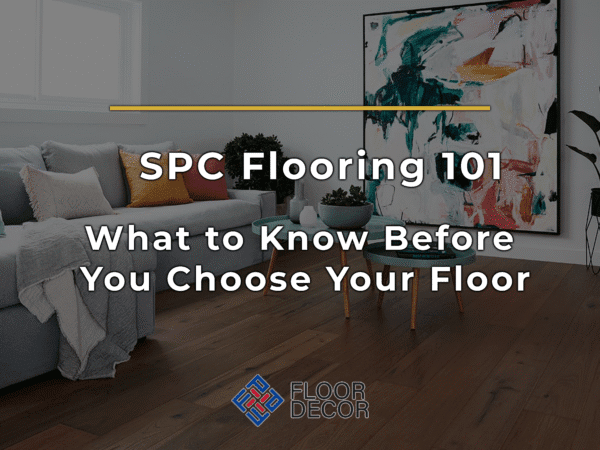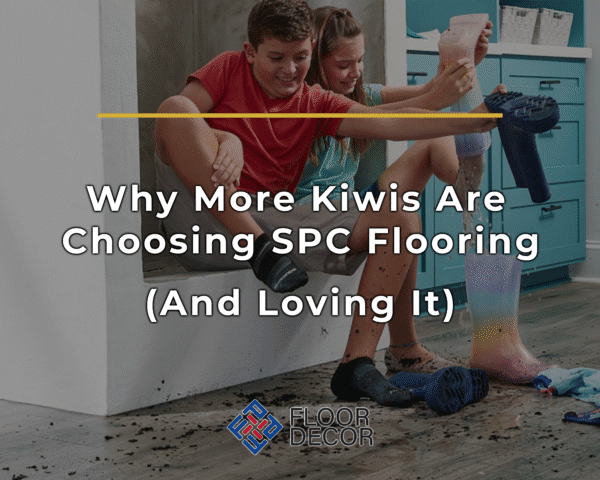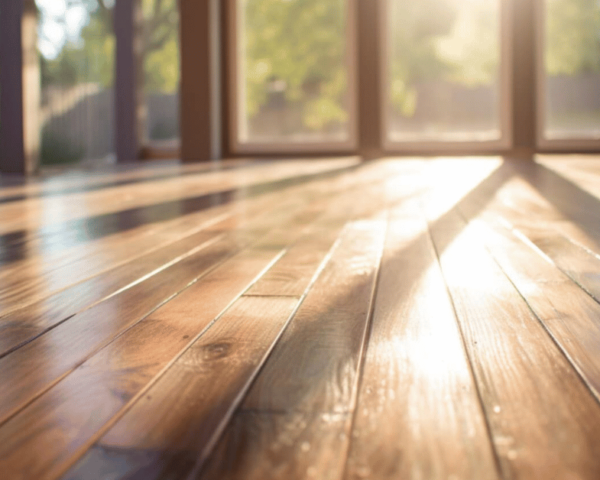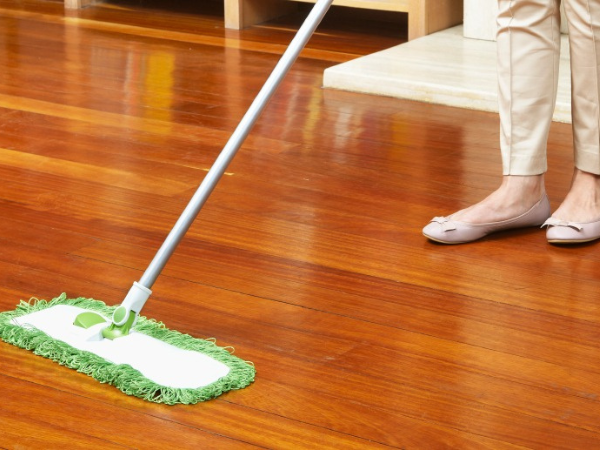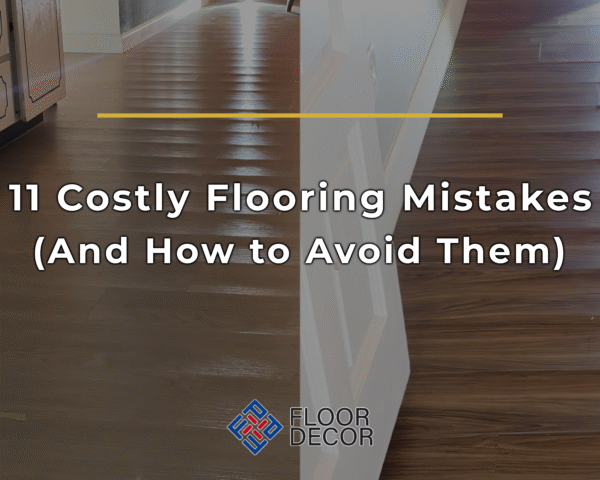Key Insights:
- Discover why SPC / Hybrid flooring is the most durable, stylish, and waterproof flooring option for busy households.
- Learn how its unique structure offers unmatched resistance to scratches, dents, and moisture.
- Understand the hidden costs of cheap flooring and why investing in quality SPC / Hybrid flooring is the smart choice.
- Get expert tips on choosing the right SPC / Hybrid flooring to fit your lifestyle and budget.
The market is flooded with SPC flooring options, each claiming to be the best. You’ve likely come across terms like “waterproof”, “durable”, “carbon-infused” and “scratch-resistant”. But how do you know which one is right for your home? The sheer variety of thicknesses, warranties, designs, and prices can leave you feeling confused and unsure.
You might be wondering: Will it last in high-traffic areas? Is it truly waterproof? What’s the difference between budget SPC and premium options? And then there’s the installation—Can I handle it myself, or will I need an expert?
The pain lies in not knowing what to prioritize. Should you go for price, durability, or aesthetics? Worse, choosing the wrong SPC flooring could lead to regrets down the line—issues like curling, gaping, peaking, chipping, fading, or discomfort underfoot.
Here’s the good news: Not all SPC flooring is created equal, and by focusing on key factors like wear layers, warranties, and performance, you can confidently narrow down your choices. Premium options, like carbon-infused SPC, offer unparalleled durability and comfort, while budget-friendly options can still meet your needs for certain spaces.
We’re here to simplify the process, address your concerns, and guide you to an SPC flooring option that perfectly balances your needs, budget, and style—so you can make a confident choice and avoid costly mistakes.
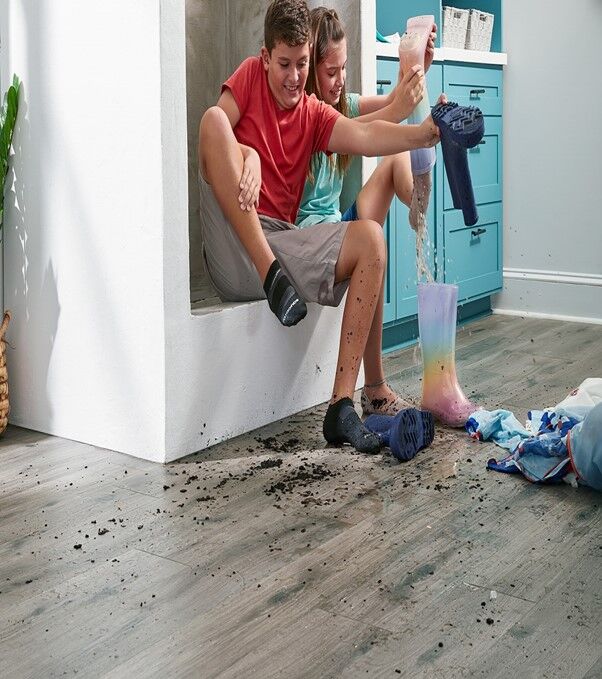
What Makes SPC / Hybrid Flooring the Best Choice for Your Home?
Here are the top benefits of SPC / Hybrid flooring that have homeowners excited:
- Unmatched Durability: SPC / Hybrid flooring resists dents, scratches, and general wear and tear, making it ideal for high-traffic areas and homes with pets or children.
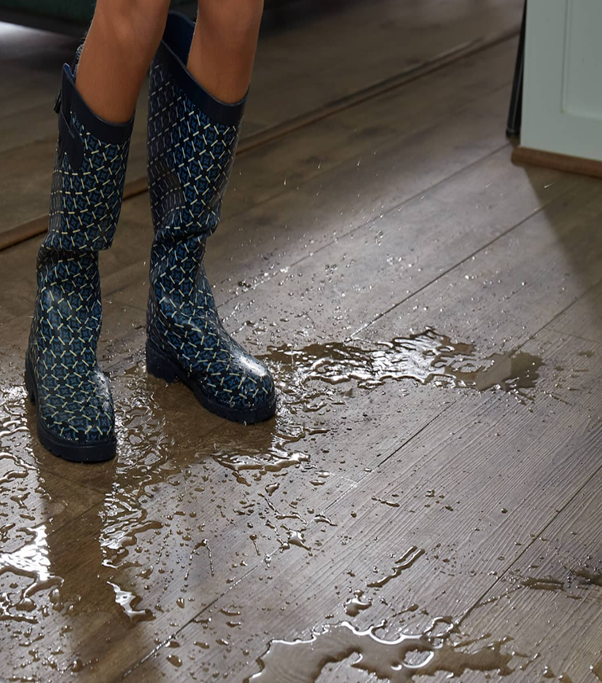
- Superior Waterproof Qualities: Perfect for kitchens, bathrooms, and basements—SPC / Hybrid doesn’t swell or warp when exposed to moisture.
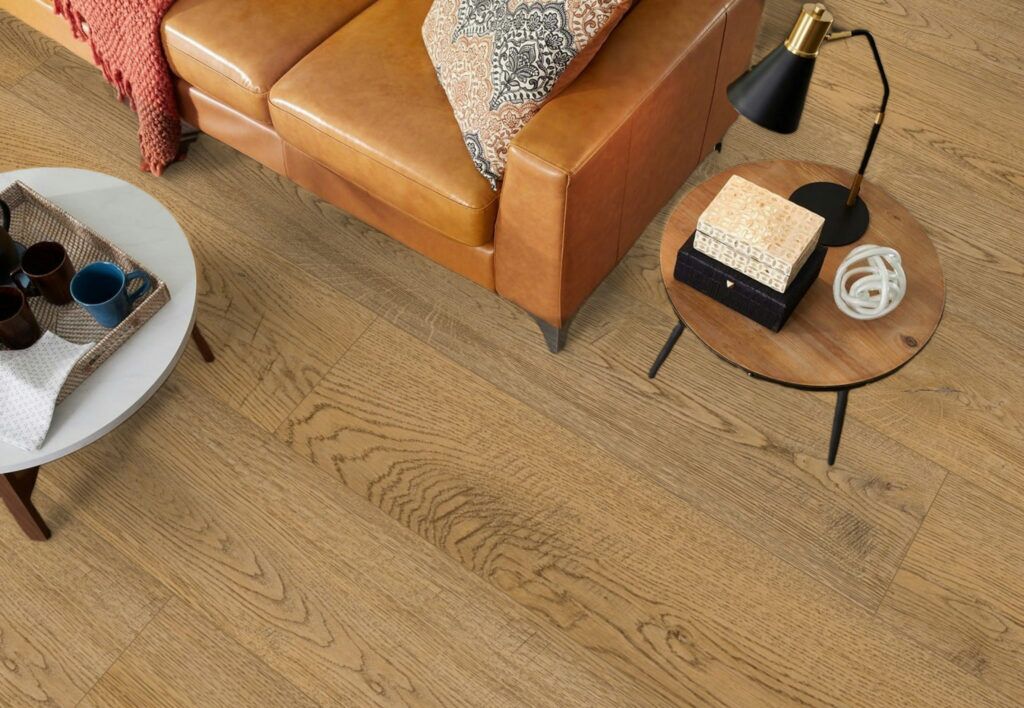
- Competitive Pricing: Offering premium quality at an affordable price, SPC / Hybrid is a smart long-term investment for any home.
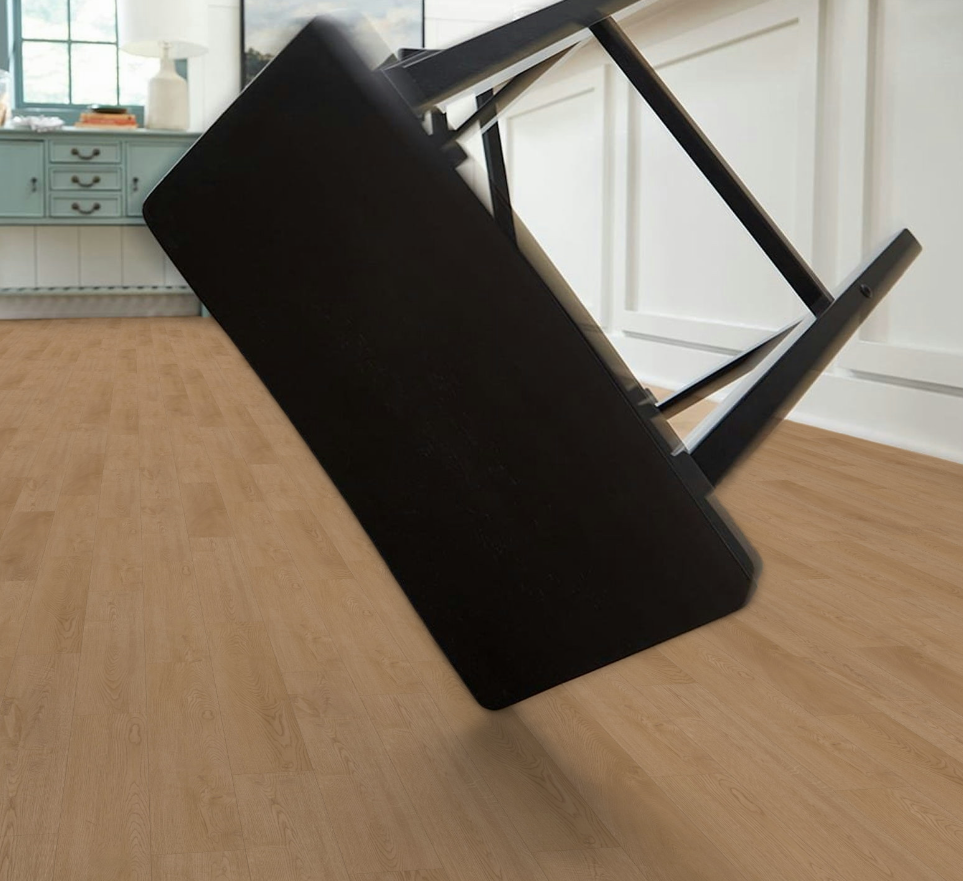
- Sound Absorption: Its rigid core and integrated underlayment reduce noise, making your home quieter and more comfortable.
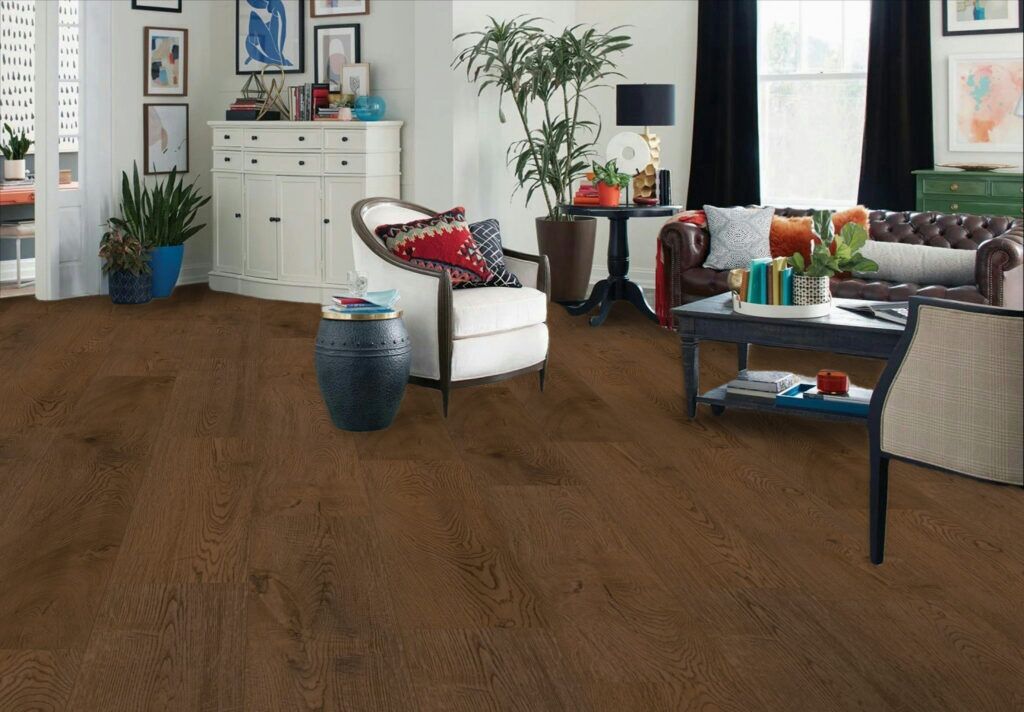
- Stylish Appearance: SPC / Hybrid flooring comes in a wide range of styles, from rustic oak to sleek modern designs, so you never have to compromise on aesthetics.
How Has Flooring Evolved Over Time?
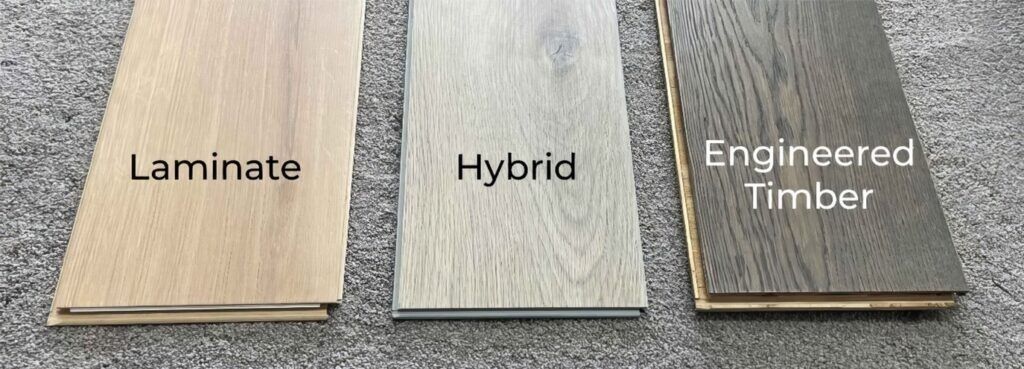
Before SPC / Hybrid flooring, homeowners relied on engineered wood, laminate, and traditional vinyl flooring. Each of these materials has its own set of pros and cons, but none quite meet the needs of today’s climate and lifestyle like SPC / Hybrid. Let’s take a quick look at how they compare:
Engineered Wood Flooring:
- Moisture Sensitivity: Prone to warping in damp environments.
- High Cost: Often more expensive and requires professional installation.
- Fading and Scratches: Susceptible to discoloration and scratches over time.
Laminate Flooring:
- Moisture Problems: Can swell or warp when exposed to water, making it less ideal for kitchens or bathrooms.
- Less Durable: While affordable, it tends to show wear sooner than SPC / Hybrid or hardwood.
Why SPC / Hybrid Flooring Is Growing in Popularity
The demand for SPC / Hybrid flooring is rising fast, growing by 30% every year in the flooring market. Why? It’s not just a trend—SPC / Hybrid flooring delivers lasting value, ensuring your home looks beautiful and functions flawlessly for years to come.
Here’s why SPC / Hybrid is becoming the go-to choice:
- Climate Resilience: Unlike wood or laminate, SPC / Hybrid doesn’t expand or contract with temperature or humidity changes, making it a smart choice in regions experiencing climate fluctuations.
- DIY-Friendly Installation: Many SPC / Hybrid flooring products feature a click-lock system that makes installation simple, even for beginners.
The Structure of SPC / Hybrid Flooring: Built for Strength and Style
SPC / Hybrid flooring is engineered with several layers, each contributing to its remarkable performance, durability, and style. Here’s a quick breakdown of what makes SPC / Hybrid flooring so reliable:
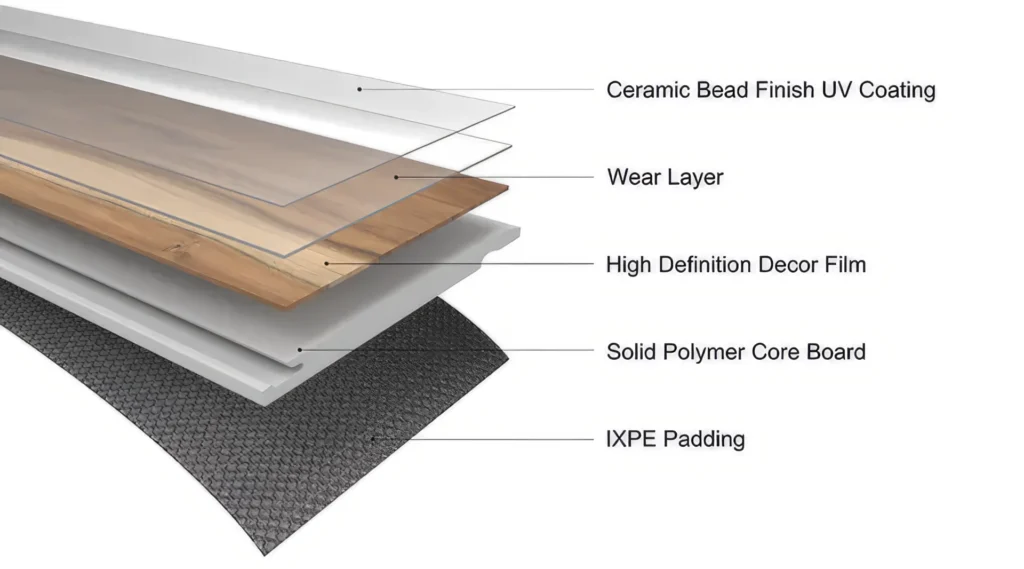
- UV Coating Layer: The top layer provides protection from scratches, stains, and UV rays. It ensures the floor stays beautiful, even in areas with direct sunlight, and keeps it easy to clean.
- Wear Layer: This transparent layer protects against everyday wear and tear. The thicker the wear layer, the more resistant the floor is to scratches, dents, and damage.
- Decorative Film: This layer gives SPC / Hybrid flooring its stylish look, mimicking natural materials like wood or stone with stunning realism. High-quality prints and textures are key to achieving an authentic appearance.
- Rigid Core Layer: The core of SPC / Hybrid flooring is where the magic happens. Made from a blend of limestone and PVC, this core is incredibly strong, providing stability and making the flooring waterproof. It’s also resistant to dents and impact, making it ideal for busy households.
- Underlayment (optional): Some SPC / Hybrid floors come with an attached underlayment, which adds comfort underfoot, absorbs sound, and provides a moisture barrier.
Is Your Flooring Climate-Resilient?
As global warming continues to impact our environment, making smart choices in home construction and renovation has never been more crucial. Climate change is causing increased temperature variations, leading to more extreme weather conditions. This means your flooring choice isn’t just about aesthetics or cost—it’s about resilience and longevity. Flooring is not a short-term investment; it’s expected to last a minimum of 15–20 years.
When you install flooring, you want it to stand the test of time. You don’t want to face the hassle of replacing your flooring every 5-6 years, which involves not only significant cost but also the inconvenience of tearing up your home. Good quality flooring not only ensures durability and stability but also adds significant value to your home. This is why Hybrid or SPC flooring, celebrated for its resilience and longevity, is becoming the top choice for homeowners looking to make a smart, long-term investment in their homes.
The Hidden Pitfalls of Cheap SPC / Hybrid Flooring: What You Need to Know
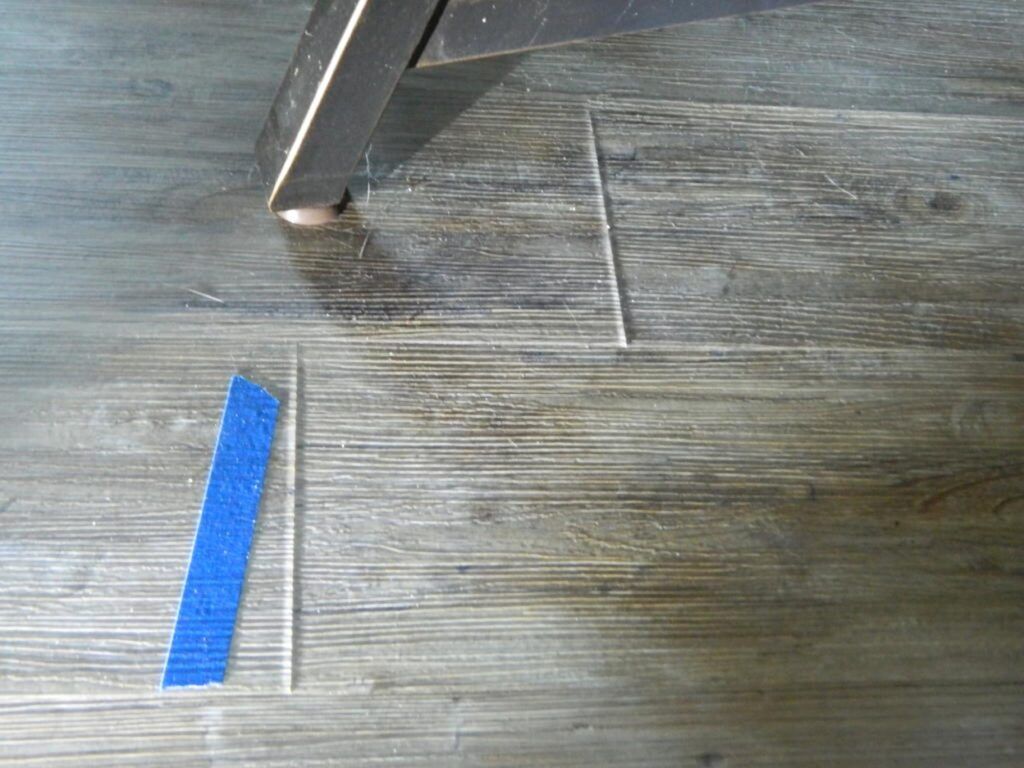
While it might be tempting to go for the cheapest option when shopping for SPC / Hybrid flooring, you could end up paying more in the long run. Here’s why lower-quality SPC / Hybrid flooring could be a costly mistake:
- Poor Durability
- Cheap SPC / Hybrid flooring often has a thinner wear layer, making it more susceptible to scratches, dents, and wear. This means you might find your beautiful new floor looking worn out in just a few years.
- Watch Out For: Wear layers below 0.3mm can wear down quickly in high-traffic areas. The flooring may not hold up against everyday wear and tear from pets, children, or heavy furniture.
- Weak Locking System
- Lower-quality SPC / Hybrid flooring often comes with a subpar locking system, which can lead to issues like gaps, buckling, or planks separating over time. This is especially problematic in areas that experience temperature or humidity fluctuations.
- Watch Out For: If the locking system feels flimsy or doesn’t click securely, you could be in for installation headaches and long-term stability issues.
- Core Composition Problems
- The core of SPC / Hybrid flooring is what gives it strength. Lower-end products may have a less dense or inconsistent core, making the flooring more prone to dents, peaking, or even breaking under heavy objects.
- Watch Out For: Lightweight SPC / Hybrid flooring usually indicates a low-density core, which won’t provide the same level of stability and durability.
- Fading and Staining
- Cheap SPC / Hybrid flooring often uses low-quality print layers and finishes. Over time, exposure to sunlight can cause fading, and the surface may be more prone to stains that can’t easily be cleaned.
- Watch Out For: Inexpensive products may lack UV protection, causing colors to fade quickly. Make sure the product has a protective coating to guard against UV rays and stains.
- No Warranty or Poor Warranty Terms
- A short or vague warranty is often a red flag. Lower-quality SPC / Hybrid flooring may come with limited coverage, leaving you unprotected if the floor starts to show signs of damage early on.
- Watch Out For: Always check the warranty details. High-quality SPC / Hybrid flooring typically comes with a 20-year or more warranty, while low-quality products may have limited or no warranty coverage.
Insider Tips: How to Choose SPC / Hybrid Flooring Like a Pro and Maximize Your Investment
Buying flooring is a big deal—you want to make sure you’re getting something that not only looks incredible but also stands the test of time. Here are some expert tips to help you pick the perfect SPC / Hybrid flooring while saving $$$ in the long run!
Beware of the “Too Good to Be True” Price Trap

- If a deal looks too sweet, it probably is. Sure, that ultra-cheap SPC / Hybrid flooring may seem like a steal, but it could cost you more in the long run with repairs and replacements. Think of flooring as an investment. A slightly higher upfront cost can save you a ton down the road. Always check for hidden quality indicators like subpar wear layers or flimsy core materials.
- Pro Tip: Stick to trusted brands and suppliers. Cheap imitations often cut corners on quality, which can lead to early wear and tear.
Get Up Close and Personal with the Design
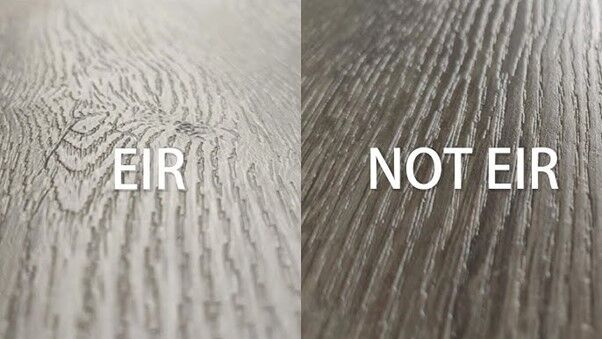
- When it comes to SPC / Hybrid, it’s all about the look and feel. Don’t just rely on
- pictures online—order samples, touch the textures, and examine the details. High-definition prints and Embossed in Register (EIR) textures are your best friends here. EIR means the texture matches the design pattern (like real wood grain), making your floor look and feel just like natural wood.
- Pro Tip: Lay out multiple samples of the same color to see how they look together. Look for variety and natural grain patterns. Bonus points if the flooring comes with UV-resistant technology to keep those colors popping for years.
Thickness Matters — More Than You Think
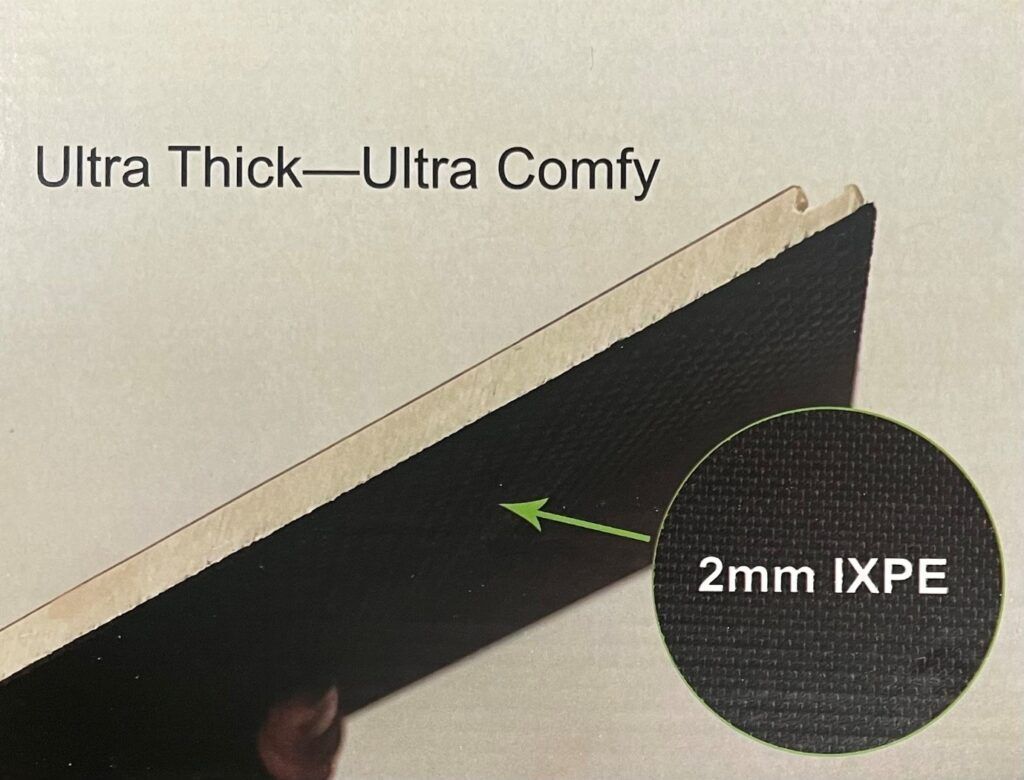
- When it comes to SPC / Hybrid, thicker is better. A thicker wear layer (0.4mm to 0.7mm) acts like armor, protecting your floor from scratches, dents, and the chaos of everyday life (think pets, kids, heavy furniture). The thicker the core (look for 6mm to 9mm), the more solid and stable your floor will feel underfoot.
- Pro Tip: Give it the “knock test.” Thicker flooring feels more solid and absorbs noise better, giving your home that high-end, quiet, and comfortable vibe.
Locking System — The Secret to a Floor That Lasts
- The locking system might not be something you think about much, but it’s crucial. A strong locking mechanism keeps the planks tight and prevents gaps from forming over time due to expansion and contraction. You don’t want to deal with buckling or peaking just because the locking system wasn’t up to par!
- Pro Tip: Look for SPC / Hybrid flooring with robust locking profiles that ensure the planks stay in place, even in rooms with heavy furniture or lots of temperature changes.
Don’t Skimp on the Underlayment
- The underlayment is like the unsung hero of SPC / Hybrid flooring. It cushions your steps, reduces noise, and acts as a moisture barrier, protecting your floor from humidity. The best SPC / Hybrid floors come with an attached underlay, which makes installation easier and saves you money on buying separate underlayment.
- Pro Tip: Choose IXPE underlayment over EVA. IXPE is non-toxic, better at absorbing sound, and provides a more comfortable walking experience.
Look Beyond the Floor—Matching Accessories Are Key
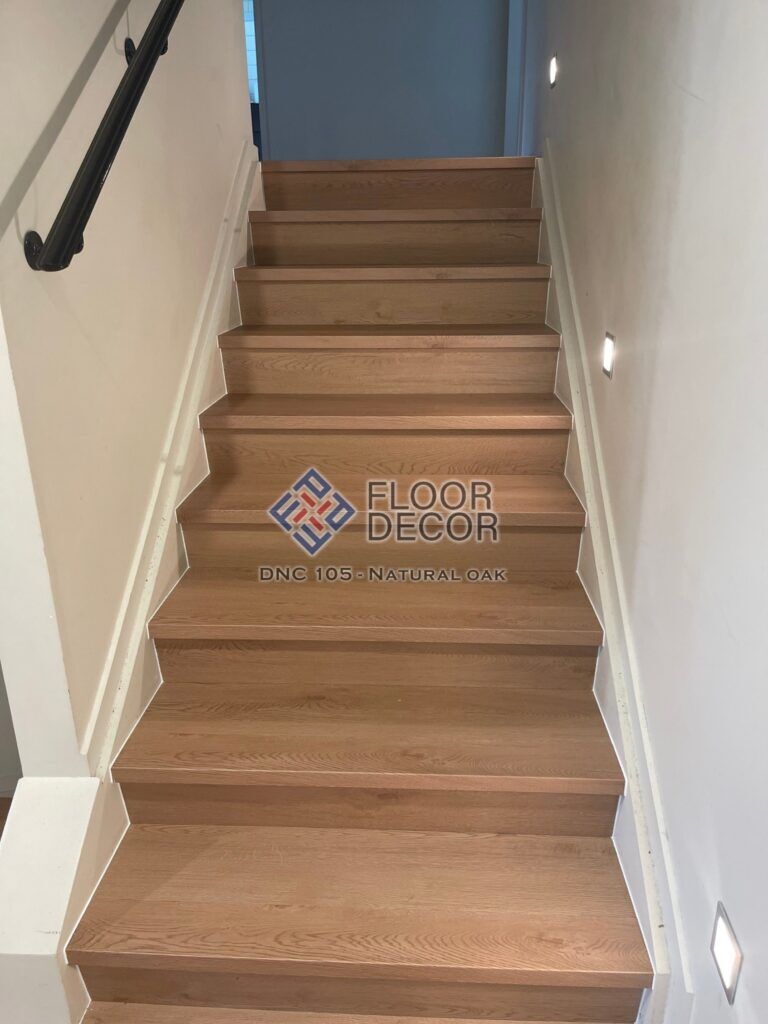
- Don’t forget about the finishing touches! Stair nosing’s, trims, and transition strips can take your flooring game from good to great. These accessories, especially if color-matched, give your space a polished and cohesive look.
- Pro Tip: Investing in matching accessories isn’t just about aesthetics—it can boost the perceived value of your home, especially if you’re thinking of selling in the future.
Test It Before You Buy It
- Not all SPC / Hybrid flooring is created equal, and sometimes a little hands-on testing can make all the difference. If you’re unsure about how scratch-resistant or durable your floor is, grab a coin or steel wool and do a scratch test. The best SPC / Hybrid flooring will have UV and scratch-resistant coatings that withstand this test without showing wear.
- Pro Tip: Make sure to ask about the warranty. A longer, more comprehensive warranty usually indicates higher confidence in the product’s durability.
Maintaining Your SPC / Hybrid Flooring
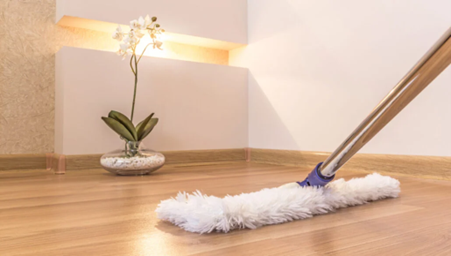
One of the best features of SPC / Hybrid flooring is how easy it is to maintain:
- Regular Cleaning: Sweep or vacuum to remove dirt and debris. Use a damp mop with a mild cleaner for a deeper clean.
- Protect the Surface: Use felt pads under furniture and place doormats at entryways to reduce dirt and scratches.
- Avoid Harsh Cleaners: Stick to mild, vinyl-specific cleaning products to avoid damage.
Ready to Upgrade to SPC / Hybrid Flooring?
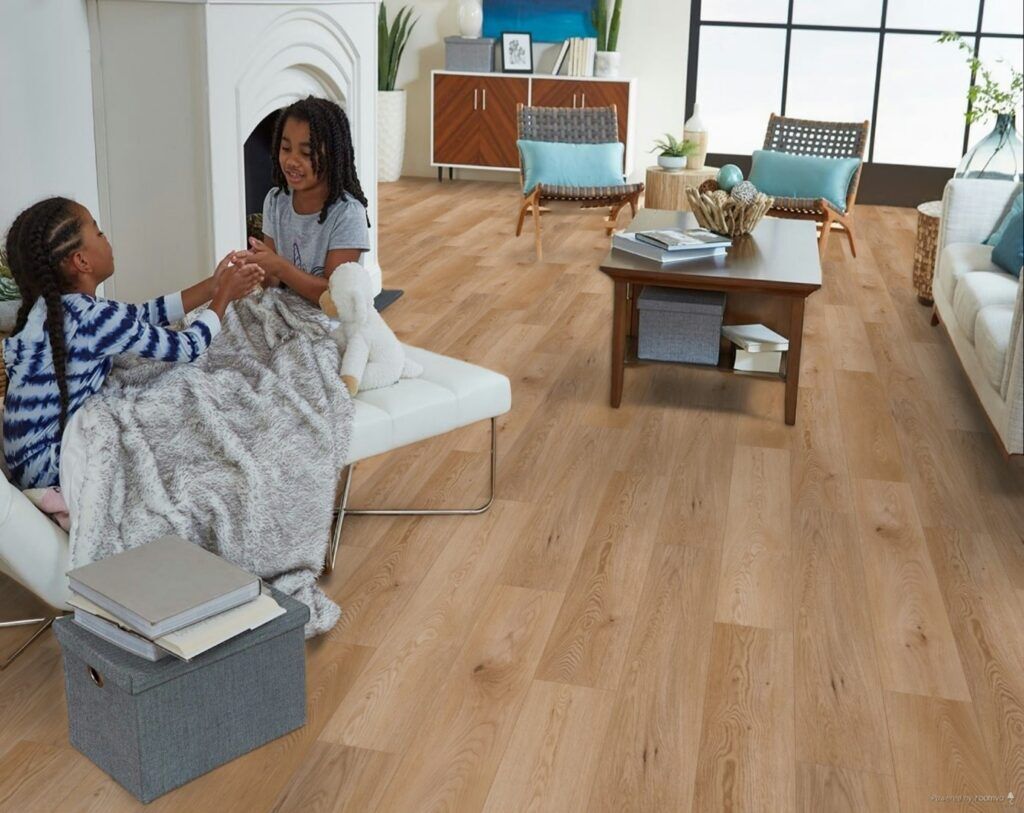
Free Samples and Consultation

What is SPC flooring?
SPC flooring is a type of rigid core luxury vinyl flooring composed of limestone and PVC, known for its durability, waterproof qualities, and realistic appearance.
Is SPC flooring a good option?
SPC flooring is durable, able to sustain high traffic, and can last over 20-50 years with proper maintenance. It is resistant to stains, scratches, and is water-resistant, making it suitable for various areas, including bathrooms, laundry and kitchens
Does SPC flooring need separate underlayment?
Many SPC flooring products come with an attached underlayment, which provides additional cushioning, sound absorption, and moisture resistance.
Can we use extra underlay with attached SPC floor underlay?
While SPC flooring often comes with an attached underlay, adding an extra underlay is generally not recommended as it can affect the stability and performance of the flooring. Always consult with the flooring specialist to determine the best installation practices for your specific flooring product.
Can SPC flooring be installed over Ceramic tiles?
Yes, SPC (Stone Polymer Composite) flooring can be installed over ceramic tiles. Before installation, ensure the ceramic tiles are clean, dry, level, and free of damage, making sure none are loose or moving. Repair any damaged tiles and fill deep grout lines with a levelling compound if necessary. Install the SPC flooring as a floating floor with an expansion gap around the room's perimeter, following the manufacturer's instructions. Finally, cover the expansion gap with baseboards or moulding for a finished look.
Can SPC flooring be installed over timber?
Yes, SPC (Stone Polymer Composite) flooring can be installed over timber flooring. Before installation, ensure the timber floor is clean, dry, and level, and that it is free from any damage, such as warping or loose boards. Repair any damaged areas and secure any loose boards. However, SPC flooring should not be installed if the timber is installed over a concrete subfloor. No additional underlayment is typically required, as SPC flooring often has an attached underlayment. Install the SPC flooring as a floating floor with an expansion gap around the room's perimeter, following the manufacturer's instructions. Finally, cover the expansion gap with baseboards or moulding for a finished look.
How does SPC flooring compare to laminate?
SPC flooring is more durable and water-resistant than laminate. It is also more stable in varying temperature and humidity conditions, making it a better choice for areas prone to moisture.
Is SPC flooring suitable for high-traffic areas?
Yes, SPC flooring is exceptionally durable and can withstand heavy foot traffic, making it ideal for high-traffic areas like living rooms, kitchens, and hallways.
Can SPC flooring be installed in bathrooms, laundry and kitchens?
Yes, SPC flooring is waterproof and resistant to moisture, making it an excellent choice for bathrooms, kitchens, and other wet areas.
Is SPC flooring suitable for commercial installations?
Yes, SPC (Stone Polymer Composite) flooring is an excellent choice for commercial installations. Its durability, water resistance, and easy maintenance make it ideal for high-traffic areas such as offices, retail spaces, restaurants, and healthcare facilities.
Is SPC flooring scratch-resistant?
Yes, SPC flooring is designed to be highly scratch-resistant, which makes it ideal for homes with pets and children, as well as high-traffic commercial spaces.
What causes cupping in SPC flooring?
Cupping in SPC (Stone Polymer Composite) flooring can be caused by several factors:
- Moisture Imbalance: Excessive moisture or humidity on one side of the flooring can cause it to expand unevenly, leading to cupping. This is often due to improper moisture control in the subfloor or environment.
- Poor Installation: Insufficient expansion gaps, improper subfloor preparation, or not following the manufacturer's installation guidelines can lead to cupping. Ensuring the subfloor is level, clean, and dry is crucial.
- Water Damage: Direct exposure to water from spills, leaks, or high humidity can cause the flooring to absorb moisture, resulting in cupping.
- Temperature Fluctuations: Extreme changes in temperature can cause the flooring to expand and contract, potentially leading to cupping if not installed correctly to accommodate these changes.
- Inadequate Underlayment: Using the wrong type or quality of underlayment can affect the flooring’s stability and moisture resistance, contributing to cupping.
- Substandard Core Composition: Using SPC flooring with a substandard core composition can lead to instability and increased susceptibility to cupping under environmental stress.
- Thinner Lock Profile: A thinner lock profile can compromise the structural integrity of the flooring, making it more prone to cupping and other issues.
Preventing cupping involves controlling moisture levels, following proper installation guidelines, and ensuring the flooring is suitable for the environment in which it is installed.
Does SPC flooring fade?
High-quality SPC flooring comes with a UV protective layer that makes it fade-resistant, ensuring the colors remain vibrant even when exposed to sunlight.
Is SPC flooring shock-absorbent?
SPC flooring has a rigid core that offers some degree of shock absorption, but for enhanced comfort and shock absorption, it often includes an attached underlayment.
Can SPC flooring be installed over radiant heating?
Yes, SPC flooring can be installed over radiant heating systems. It is designed to withstand the temperature variations and provide a comfortable walking surface.
Can SPC flooring be installed near a fireplace?
Yes, SPC flooring can be installed near a fireplace. Its composition makes it resistant to heat, ensuring safety and durability in areas exposed to higher temperatures.
How do I clean and maintain SPC flooring?
SPC flooring is minimal maintenance. Regular sweeping or vacuuming and occasional mopping with a damp cloth or a mild cleaner are usually sufficient to keep it looking its best.
Is SPC flooring eco-friendly?
Many SPC flooring products are made with environmentally friendly materials and low VOC emissions, contributing to better indoor air quality and sustainability.
How does SPC flooring handle climate changes?
SPC flooring is highly stable and resistant to expansion and contraction due to temperature and humidity changes, making it suitable for regions with varying climates.
What are the installation options for SPC flooring?
SPC flooring typically features a click-lock installation system, making it easy to install as a DIY project or by professionals. It can be installed over most existing floors without the need for adhesives.
What surface textures are available for SPC flooring?
SPC flooring comes in various surface textures, including embossed in register (EIR), hand-scraped, smooth, textured, matte finish, glossy finish, distressed, wire-brushed, deep embossed, and high definition.
Can SPC flooring increase the resale value of my home?
Yes, SPC flooring can enhance the aesthetic appeal and functionality of your home, potentially increasing its resale value.
Should SPC flooring be installed before or after kitchen cabinets installation?
It is generally recommended to install SPC flooring after the kitchen cabinets. If the flooring is installed first, you may lose the warranty on the flooring as it may cup and buckle since the flooring cannot expand and contract freely. Installing it after the cabinets prevents potential damage and allows for proper expansion and contraction. Consult with your installer for the best approach for your specific situation.
By choosing hybrid waterproof SPC flooring or Floating LVT, you are investing in a stylish, durable, climate-resilient, and high-quality flooring solution that enhances the beauty and functionality of your home. Explore our range of SPC flooring options to find the perfect fit for your needs and enjoy the peace of mind that comes with a robust warranty.

